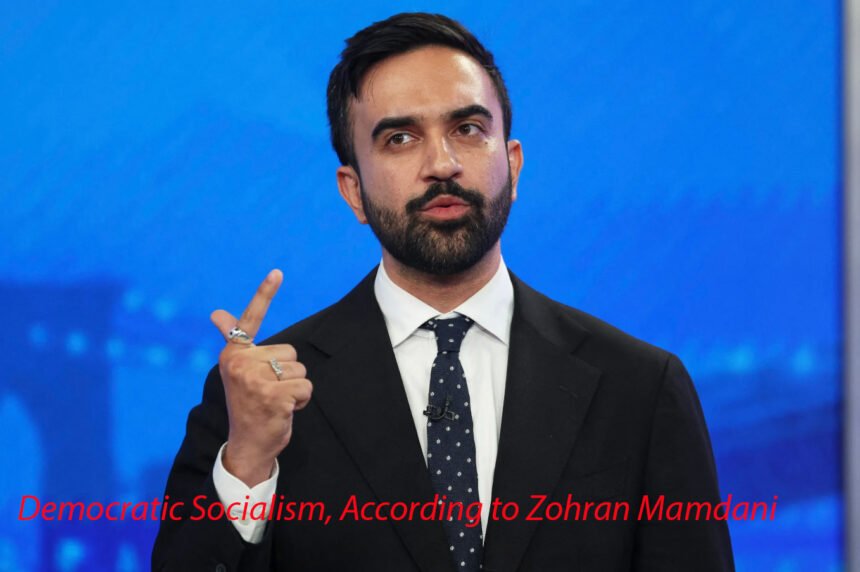Zohran Mamdani has emerged as one of the most outspoken voices representing a new generation of progressive leaders in the United States. The New York state assemblyman from Queens, known for his bold ideas and deep commitment to community-driven change, defines democratic socialism not merely as an economic framework but as a moral compass for modern governance.
His political stance blends compassion with practicality, offering a vision of government that works for everyone rather than just the privileged few. For Mamdani, democratic socialism is not an abstract ideology, it’s a daily practice rooted in addressing inequality and ensuring justice in housing, healthcare, education, and public safety. He frequently emphasizes that this political movement is about giving people genuine control over their lives through strong labor protections, affordable living conditions, and community-based decision-making.
Redefining the Role of Government
In Mamdani’s view, democratic socialism redefines what government should do for its citizens. Rather than relying solely on market forces, he believes that collective action and public investment can help build a more equitable society. He often points out that while capitalism rewards profit, socialism rewards people, and the challenge lies in finding a system that values both productivity and humanity. Under this vision, the government becomes a tool for empowerment, not just administration.
Policies such as rent stabilization, universal healthcare, and climate justice are, for him, not radical ambitions but logical responses to structural problems. Mamdani argues that when governments prioritize corporate interests over human needs, democracy weakens. The answer, he insists, lies in restoring power to the people through transparent and accountable public institutions.
Economic Justice as a Foundation
A cornerstone of Mamdani’s democratic socialism is economic justice. He advocates for higher taxes on the wealthy, stronger labor unions, and expanded public housing. His policies aim to ensure that working-class families no longer bear the heaviest burdens of economic inequality.
Mamdani’s speeches frequently emphasize the moral imperative of redistributing wealth and opportunities. He believes that when citizens have access to fair wages, quality healthcare, and stable homes, they can fully participate in democracy. For him, economic rights are inseparable from political rights one cannot exist meaningfully without the other.
His approach also extends to international solidarity. Mamdani often draws connections between global struggles against colonialism and the domestic fight against systemic racism and poverty. He sees democratic socialism as a global movement that recognizes the shared humanity of all people.
A Human-Centered Approach to Progress
Beyond economics, Mamdani’s interpretation of democratic socialism centers on empathy. He envisions a government where compassion is a guiding principle. For instance, his advocacy for tenants’ rights and public transit improvements reflects his commitment to everyday issues that affect millions. He argues that progress is not measured by corporate profits but by how well society treats its most vulnerable members.
Zohran Mamdani also emphasizes political education, encouraging voters to see themselves as active participants in shaping policy rather than passive consumers of political messaging. He often says that true democracy requires an informed and engaged public willing to hold leaders accountable.
Conclusion – A Movement Rooted in Humanity
Zohran Mamdani’s vision of democratic socialism is not about dismantling capitalism overnight; it’s about reimagining society through fairness, solidarity, and collective responsibility. He represents a growing movement within American politics that challenges conventional power structures and calls for a system centered on dignity rather than domination. Through his leadership, Mamdani shows that democratic socialism is not a dream but a direction a way to transform compassion into policy and ideals into action.
His message resonates with young voters who see inequality as the defining issue of their time and believe that government should serve everyone, not just the few. In redefining what democracy can mean in the 21st century, Zohran Mamdani invites citizens to imagine a future built on justice, inclusion, and hope.












